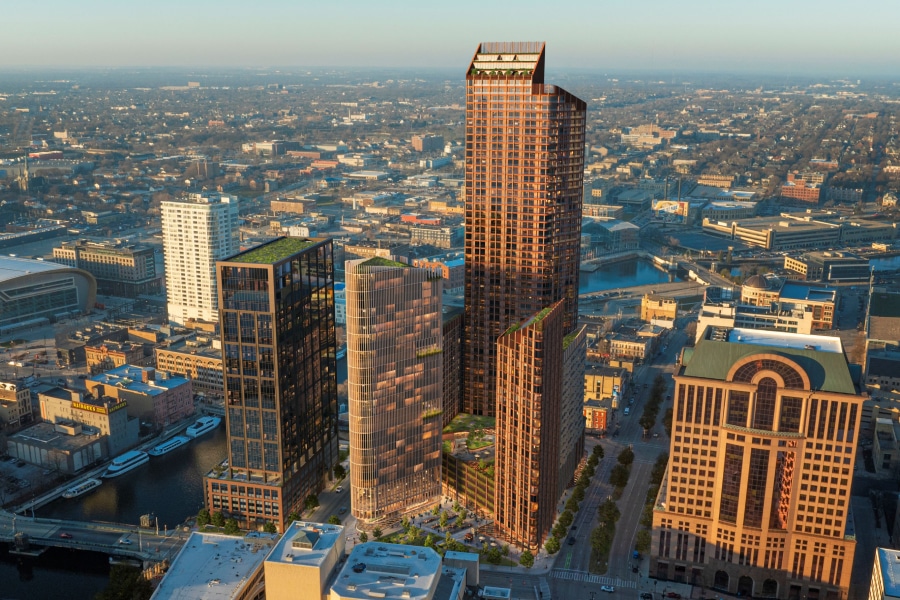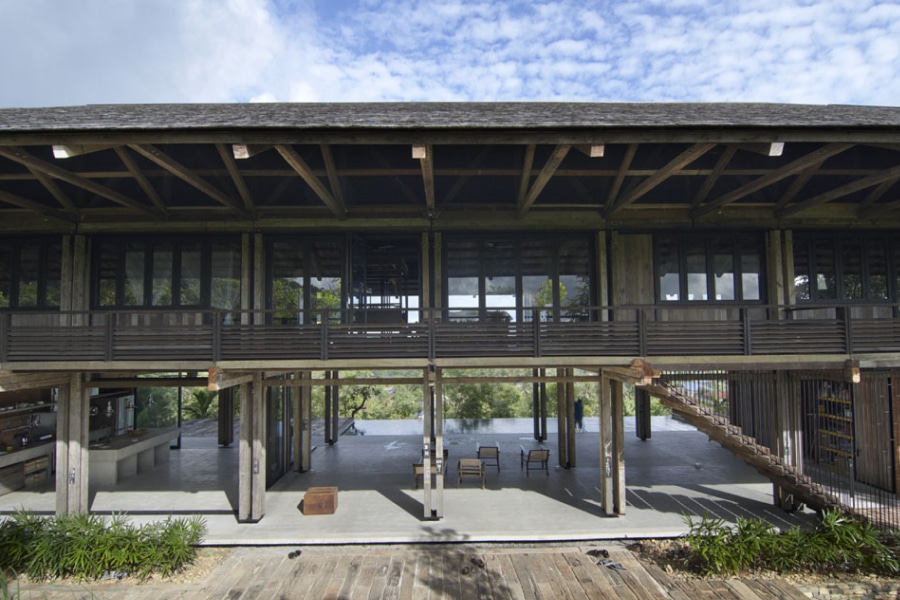Walk through the ReBuilding Center in Portland, Oregon, and it can feel a bit like a treasure hunt.
Here, however, the loot is everything from old-growth lumber and 2x4s to a 1920s chandelier and kitchen cabinets just removed by a DIYer. The 26-year-old institution is so adored that fans say “I love that place” when they mention it. The slogan is emblazoned on a bumper sticker touting the store.
Today, the ReBuilding Center has a dual purpose—reusing construction and home improvement items that still have value and serving Portland’s homeowners, particularly low-income ones, by providing the materials and knowledge they need to maintain their homes.
It’s all part of a growing and global effort aimed at keeping construction materials out of landfills, a mounting problem that’s sparking new laws and other efforts to divert the waste. In 2018, the U.S. construction and demolition industry generated 600 million tons of debris—two times the amount of municipal solid waste that was created, according to the U.S. Environmental Protection Agency. In the European Union, construction and demolition waste accounts for more than one-third of all waste produced.
“What we’re trying to do is take the resources that are already in existence and put them back into the community,” said Jackie Kirouac-Fram, The ReBuilding Center’s executive director.
Back to good use
From its north Portland shop, the center sells unique, reclaimed building materials that are donated by contractors, construction firms, renovators and homeowners at affordable prices. Early on, the nonprofit also launched its own deconstruction services program. Over 20 years, it pulled apart nearly 1 million square feet of building area on more than 1,200 different projects, selling what was left at its store.
In 2019, the center’s deconstruction services shut down. The center had helped to successfully lobby for a 2016 Portland city ordinance, which required some older homes headed for demolition to be fully deconstructed instead. The law was expanded in 2019 and, by then, the number of for-profit deconstruction companies had exploded.
“In the nonprofit sector, the goal is to work yourself out of a job, and I think we did that in terms of deconstruction,” Kirouac-Fram said.
Around the same time, the nonprofit’s focus also began to shift. Until a few years ago, its mantra was to keep whatever it could out of the landfill. The store was packed with items, some broken and not so reusable. Its leaders decided to look for better ways to leverage materials and support its community.
Now, the nonprofit only takes items that are in good condition and can actually be used. “It’s not about keeping stuff out of the landfill; it’s about putting it back into use in the community,” Kirouac-Fram said.
Homeowner support
Leaders also saw a growing need among some of the city’s longtime homeowners. As the ReBuilding Center grew over the decades, Portland became a hotbed for gentrification. New, much more expensive neighborhoods sprung up from older ones, displacing thousands of people. Center leaders recognized that the store had profited from that displacement as it received and sold items from those deconstructed homes.
“The materials that we were receiving were products of the gentrification that was happening and all the tear downs and renovations that were happening,” Kirouac-Fram said. “We were benefiting in terms of receiving them.”
So the nonprofit refocused its efforts to ensure lower-income homeowners who remained, even as they faced the needs of aging houses and higher property taxes in gentrified neighborhoods, had the resources they needed to stay put. In addition to already providing free or affordable materials, the nonprofit also is rolling out home maintenance classes and providing building materials that are free to those who qualify, based on their income level.
“An inability to do home repairs is one of the main reasons that people lose their homes,” Kirouac-Fram said. “Our emphasis is on early intervention, helping people learn to identify when they have an early repair need and teaching them how to fix it or how to hire somebody to fix it for them.”
Translating material to support
With the shift, the ReBuilding Center has new priorities. It’s educating local deconstruction companies on best practices for taking apart a structure. It’s building relationships with manufacturers and distributors, who may have new materials they don’t need to donate to the store. New materials are critical for low-income homeowners who have fallen out of code compliance, Kirouac-Fram said.
And, as the nonprofit increasingly relies on donations amid growing inflation, it’s increasing its marketing efforts to get the word out about what it does. “We’re really trying to make sure that we are visible and accessible for the people who really need our materials in addition to the people who want them,” Kirouac-Fram said.
Asking contractors and construction companies to take the time and effort to carefully deconstruct a house instead of demolishing it is hard without a law mandating it, she acknowledged. A Portland State University study on the economics of residential building deconstruction in Portland found that deconstruction projects take far more time and money and larger crews than a typical demolition job.
But, as more communities begin considering laws like Portland’s, programs like the ReBuilding Center, which are popping up across the country, provide opportunity. “We are a viable option that is not only saving folks on disposal fees and helping them feel better about the work that they’re doing,” she said, “but we take that material and we translate it into support for our community members.”











